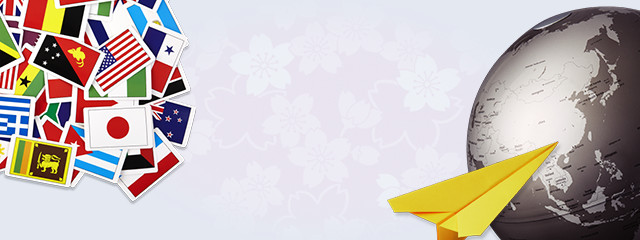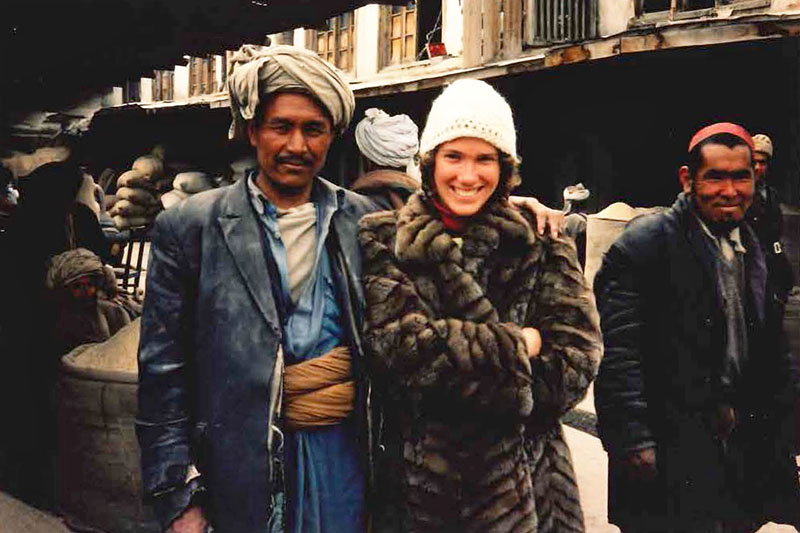
Faculty of International Studies
国際学部ニュース詳細
更新日:2021年12月23日
その他
【国際学部】リレーエッセイ(4)リリアン・スウェイン “To Cherish the Life of the World ”(Margaret Mead)
“To Cherish the Life of the World” (Margaret Mead)
Lillian Swain

The news that the U.S. military finally departed Afghanistan on Aug. 30, 2021, ending a 20-year occupation of the country, brought back a flood of memories of the time I spent travelling through Afghanistan in 1976, when I was 25 years old.
I took a bus from Tehran, in Iran, to Kandahar and then Kabul. It took days, with several stops along the way. We had to wait a long time at the border between Iran and Afghanistan while our bus driver, a South African, held mysterious negotiations with the border guards. Later, some repairs had to be made to the bus, and we waited a long time for the necessary parts to be found. Luckily we had brought a supply of muesli and chocolate to eat on the trip, so we survived on that.
As I looked out the window of the bus at the passing view, the predominant color was a dusty brown. There were small brown houses set in brown fields with a few brown goats, and brown mountains in the distance, topped with just a little white of snow. What a difference from the green of North Carolina! I realized that it was a desert, and life was harsh.
When I finally arrived in Kabul, I was able to really notice the colors of life in Afghanistan. The bazaars were full of colorful tapestries and rugs, ornaments and pots and pans, and coats and scarves. There were mountains of dried fruits and nuts. I loved the fresh naan we bought every morning to have for breakfast, with tea.
All of the men were kind and friendly, with big smiles and twinkly eyes. I wonder what happened to the man who sold me that coat, who is standing next to me in the picture. Did he survive the last twenty years of war? I never spoke to a woman, not even once, while I was in Afghanistan. I saw them, but they were completely covered from head to toe, and even their eyes were hidden. It would take a long time and a lot of effort to really get to know the culture of Afghanistan, not something a simple traveler could do.
So why did the US stay in Afghanistan for twenty years, and what did it accomplish? The original trigger was the terrorist attacks on September 11, 2001. The Afghan government was quickly overthrown, and Osama Bin Ladin was killed in 2011. When the US withdrew in 2021, the Taliban immediately returned to power. According to the Costs of War Project, the war killed 176,000 people; 46,319 civilians, 69,095 military and police and at least 52,893 opposition fighters. Afghanistan is suffering from food shortages and the economy is on the brink of collapse, according to the UN.
A famous Major General in the US Marine Corps with the wonderful name of Smedley Darlington Butler made a speech in 1933 saying, "War is a racket. It is conducted for the benefit of the very few at the expense of the masses." According to a study conducted by the Watson Institute for International & Public Affairs of Brown University and the Center for International Policy:
Since the start of the war in Afghanistan, Pentagon spending has totaled over $14 trillion, one-third to one-half of
which went to defense contractors." One-quarter to one-third of all the money has gone to just five major weapons
contractors: Lockheed Martin, Boeing, General Dynamics, Raytheon, and Northrop Grumman. In addition,
other companies such as the logistics and reconstruction firms Kellogg, Brown and Root (KBR) and Bechtel,
and armed private security contractors like Blackwater and Dyncorp also benefited greatly.
And now, although the US has withdrawn from Afghanistan, it has active duty military troops stationed in nearly 150 countries (CNN). That includes Japan, where just in recent days US military aircraft have dumped fuel tanks before an emergency landing in Misawa and accidently dropped a metal water bottle in Okinawa. A U.S. military helicopter crash landed in a rice paddy in Miyazaki Prefecture on July 27. Meanwhile, Japan has decided to spend more money than ever before to buy new weapons from the these US military contractors.
It will be said that it is necessary to have a strong military because there are always threats, and it is naïve to think that there aren't. But what if it is naive to believe that military strength can protect you, and war can bring peace? Perhaps that is magical thinking. Perhaps there is a confusion between magic and miracles. The author Marianne Williamson wrote:
The search for the miraculous is not magical thinking; if anything, it is the end to our magical thinking.
Magical thinking is thinking we can endlessly behave without love toward people or planet and not suffer the
consequences. Magical thinking is thinking our democracy or even life itself is guaranteed if we do not take care
of them. Miraculous thinking is knowing it’s both our responsibility and our power to change that. Magical thinking
is the stuff of psychological immaturity; miraculous thinking is the evolution of our consciousness to a fuller
realization of what’s possible.
With the new coronavirus pandemic still not under control, it is difficult to travel to other countries as I did in my twenties, but the time will come when you will, and in the meantime you can learn as much as possible about them in your classes. As students of International Studies, you have the great privilege and joy of getting to know other countries and cultures, to find the miraculous, in other words, to cherish the life of the world.






